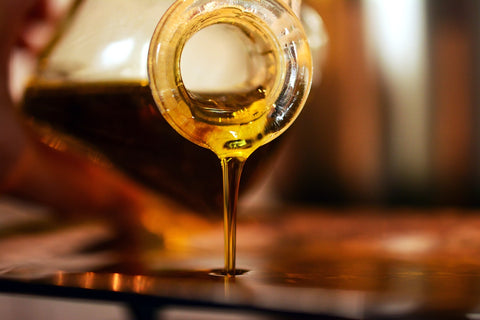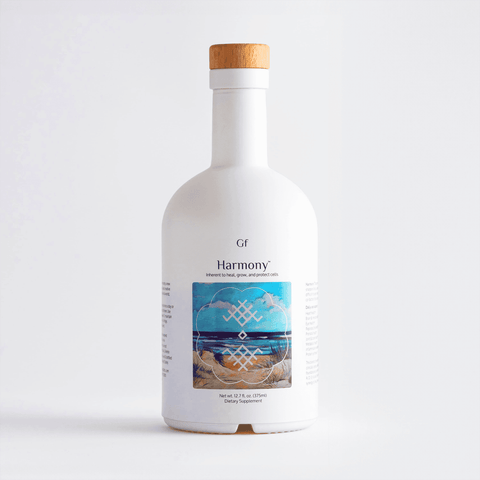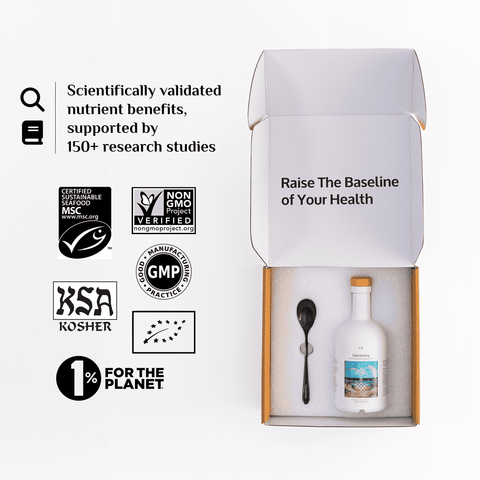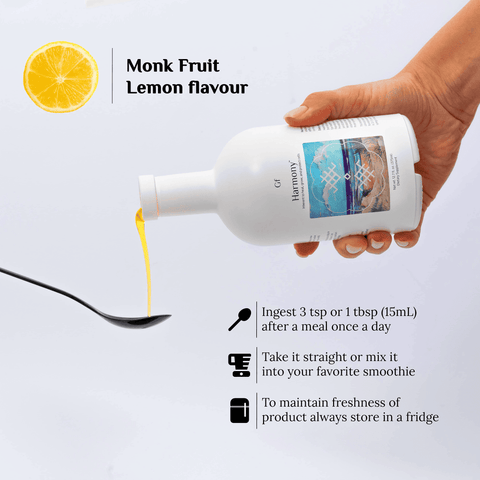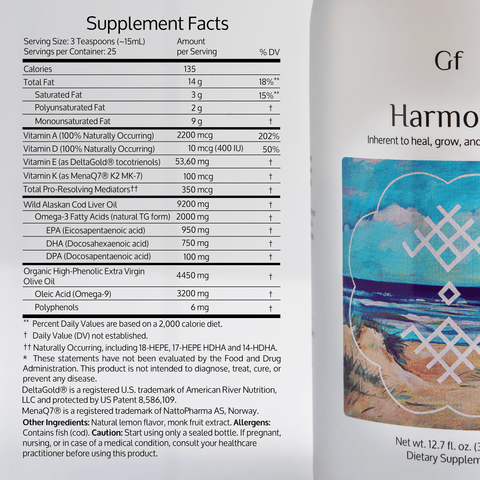Omega-3 fatty acids are well-known for their many health benefits, from improving heart health to reducing inflammation. However, their susceptibility to oxidation often raises concerns. Fish oil supplements, one of the most popular sources of omega-3, are commonly fortified with Vitamin E to prevent this oxidation. But is Vitamin E enough to protect these delicate fatty acids? Recent scientific studies suggest that while Vitamin E can play a role, but it might not provide the comprehensive protection omega-3 needs.
The Challenge of Omega-3 Oxidation
Omega-3 fatty acids are highly vulnerable to oxidation due to their polyunsaturated structure. When omega-3 is exposed to oxygen, light, or heat, it can become rancid, leading to the formation of harmful by-products like free radicals and aldehydes, which could potentially counteract its health benefits. Oxidized fish oil may not only lose its efficacy but can also produce negative effects, making oxidation prevention a critical concern.
To combat this issue, Vitamin E is often added to fish oil supplements. Vitamin E is an antioxidant, which means it helps neutralize free radicals, potentially slowing down or preventing the oxidation process. However, the effectiveness of Vitamin E in this context remains debated.
Vitamin E’s Role: What the Studies Show
-
The Limited Role of Vitamin E
A key study conducted in 1991 found that Vitamin E, while useful in delaying oxidation, does not provide complete protection for omega-3 fatty acids in fish oil. The study noted that Vitamin E could slow down the oxidative process but wasn’t effective at preventing it entirely under certain conditions. [1] -
Oxidative Stress and the Need for Better Protection
Another study published in 1997 investigated the efficacy of Vitamin E as an antioxidant in fish oil. It concluded that while Vitamin E played a role in mitigating oxidative damage, additional measures were necessary to fully protect omega-3s from degradation. This finding suggests that relying solely on Vitamin E might leave fish oil vulnerable to oxidation, especially in less-than-ideal storage conditions. [2] -
A Combination Approach: Synergy with Polyphenols
In 2019, a comprehensive study explored alternative antioxidants and their ability to protect omega-3 from oxidation. This study demonstrated that polyphenols, such as those found in olive oil, offer superior protection when compared to Vitamin E . The polyphenols act as more effective free radical scavengers and provide a more robust defense against oxidative stress in omega-3 fats. [3] -
Vitamin E vs. Polyphenols: A Head-to-Head Comparison
A 2000 study compared the antioxidant capabilities of different compounds, including Vitamin E and polyphenols. The results indicated that while Vitamin E did provide some protection, the polyphenols exhibited a much higher level of efficacy in preserving omega-3 stability. [4] -
Exploring Better Antioxidant Soltions
Another 2009 study reviewed the overall performance of Vitamin E in protecting omega-3 fatty acids from oxidation. It suggested that alternative antioxidants, such as rosemary extract and olive oil polyphenols, may offer better protection . The study highlighted the need for more effective solutions than Vitamin E alone in ensuring the long-term stability of omega-3 supplements. [5]
Is Vitamin E Enough?
While Vitamin E has been a traditional choice for protecting omega-3 in fish oil supplements, scientific evidence suggests that it is not enough on its own. The studies reviewed indicate that Vitamin E does provide some antioxidant activity, but it is far from the most effective option. Oxidation can still occur, especially under unfavorable conditions, leading to the degradation of omega-3 and potentially harmful by-products.
Oxidative stability of different products (AOCS Official Method Cd12b-92)
Average of 3 analysis at 70°C SINTEF - Fisheries and Aquaculture - August 2010

As the 2010 study done by SINTEF demonstrates in the graph above - the fish oil combination with extra virgin olive oil rich in polyphenols (strong antioxidants) are clearly the most oxidative stable of the measured oils as it took around 35 hours at 70°C (158°F) to reach the induction point. Krill oil with natural astaxanthin reached the induction point after around 1 hour, and concentrated omega-3 (EPA+DHA) product with added tocopherols as antioxidant was oxidized after 9 hours. Cod liver oil with tocopherols added as antioxidant reached the induction point after 16 hours. The results of this study demonstrate that fish oil blended with extra virgin olive oil rich in polyphenols is an oxidative stable product, indicating the protective effects of the polyphenols on the fish oil.
Conclusion
For those relying on fish oil supplements as their primary source of omega-3, understanding the limitations of Vitamin E in protecting against oxidation is crucial. While Vitamin E can slow oxidation, it may not provide the full spectrum of protection that omega-3 fats require. More effective antioxidants, such as polyphenols, could offer better stability and extend the shelf life of these supplements, ensuring that you reap the full health benefits of omega-3 without the risks of oxidation.
If you're looking to maximize the benefits of omega-3 from fish oil, consider supplements that include advanced antioxidant protection, or even better, pair your omega-3 intake with antioxidant-rich foods like olive oil.
References:
[1] M Meydani, F Natiello, B Goldin, N Free, M Woods, E Schaefer, J B Blumberg, S L Gorbach (1991). Effect of long-term fish oil supplementation on vitamin E status and lipid peroxidation in women. J Nutr. https://pubmed.ncbi.nlm.nih.gov/1826131/
[2] J P Allard, R Kurian, E Aghdassi, R Muggli, D Royall (1997). Lipid peroxidation during n-3 fatty acid and vitamin E supplementation in humans. Lipids (Clinical Trial). https://pubmed.ncbi.nlm.nih.gov/9168460/
[3] J Leskovec, V Rezar, A N Svete, J Salobir, A Levart (2019). Antioxidative Effects of Olive Polyphenols Compared to Vitamin E in Piglets Fed a Diet Rich in N-3 PUFA. Animals (Basel). https://pubmed.ncbi.nlm.nih.gov/31013804/
[4] P Yaqoob, H S Pala, M Cortina-Borja, E A Newsholme, P C Calder (2000). Encapsulated fish oil enriched in alpha-tocopherol alters plasma phospholipid and mononuclear cell fatty acid compositions but not mononuclear cell functions. Eur J Clin Invest (Clinical Trial). https://pubmed.ncbi.nlm.nih.gov/10692004/
[5] K Engström, A Saldeen, B Yang, J L Mehta, T Saldeen (2009). Effect of fish oils containing different amounts of EPA, DHA, and antioxidants on plasma and brain fatty acids and brain nitric oxide synthase activity in rats. Ups J Med Sci. https://pubmed.ncbi.nlm.nih.gov/19961266/


